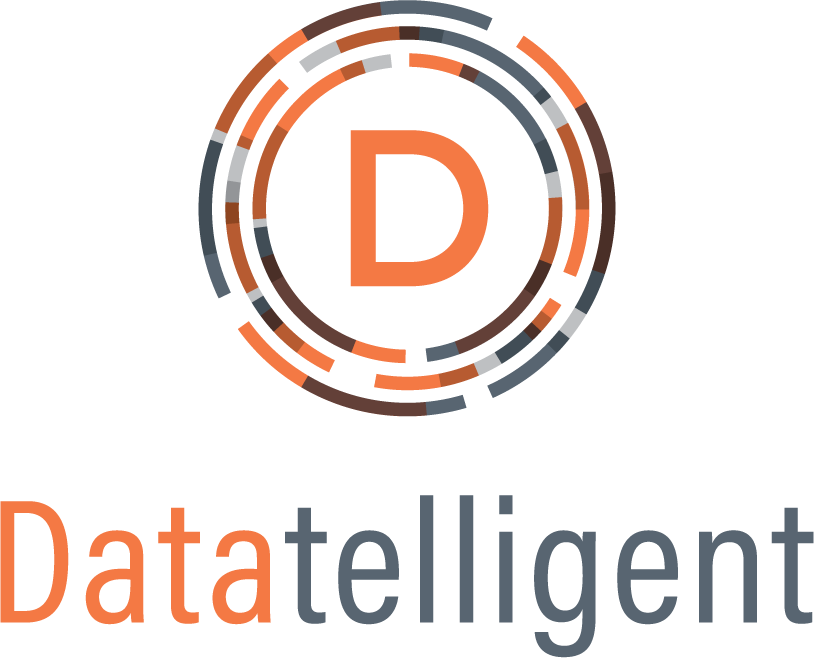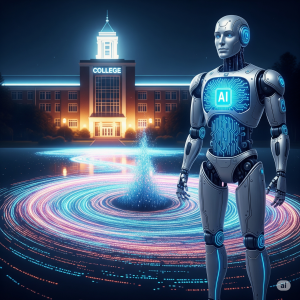6 Takeaways From The 2022 AIR Forum Conference
A team from Datatelligent ascended on Phoenix for the 2022 AIR Forum Conference, the first in-person event for us since 2019. Bringing together higher education professionals, specifically institution researchers, with data and analytics leaders, AIR Forum was well attended and full of energy.
The conference also allowed us to reflect on the current and future state of data across the higher education space based on the sessions we attended and the meeting and discussions we had with leaders. With that, here are our top 6 takeaways from 2022 AIR Forum.
1. It was Great to be Back in Person
Conference attendees, myself included, were excited to see one other, to share ideas, and to catch up. AIR Forum provided opportunities for networking, brainstorming, and problem-solving.
The coffee shop in the convention center was a regular hot-bed of connections and conversations, and it served as a good reminder that connecting face-to-face is an unparalleled experience. Virtual conferences have proven to be extremely effective when it comes to delivering great content, but I think we can all agree that nothing replaces those spontaneous hallway discussions. It sure was great to be back in person!
2. Data Literacy & Maturity are Critical
Data literacy is the ability to explore, understand, communicate and tell stories with data.
The good news is that from the discussion we had at AIR Forum, higher education institutions truly understand that data is the ultimate differentiator and that data literacy is the key to unlocking the value of your data and technology investments.
Understanding your institution’s data maturity in terms of your data and analytics vision, as well as your data sources and KPIs, is critical to advancing your maturity.
We met with several leaders and discussed data maturity. Through this, we learned that there is a wide spectrum across organizations, ranging from data aware to data proficient and then further up the spectrum to data savvy and ultimately data driven.
3. There’s a Severe Data Staffing Challenge… and Options
We can all agree that it’s difficult trying to find the right talent for the job, regardless of the job. But when you add in the need for specialized data skills, the challenge becomes even more cumbersome. On top of that, as we potentially head into a global recession, the outlook becomes grim.
It’s not surprising that we heard from several higher education leaders who said they were actively looking to get creative and “future-proof” their workforce in the face of:
- Not being able to hire due to a shortage of data workers
- Declining retention due to employee turnover
- Economic uncertainty in the face of a possible recession
- Inability to keep good talent due to the high demand for highly skilled data workers
One way to circumvent the hiring challenge was to actually not hire directly. Instead of hiring, leading higher education institutions that are looking to reduce risk while also increasing efficiency are turning to Datatelligent’s Data Analytics as Service (DAaaS) model, an alternative option to staffing and building your data team.
For the cost of just one senior data architect, with our DAaaS model, you can get a whole team to support your data needs—from solutions, strategy, to detailed expertise. We bring use of our leading-edge solutions to help grow your business—all under one unique subscription as a service solution.
4. Virtualization was Everywhere
For institutions looking for a new way to combine data from different sources that make it easier to access, understand and share across your organization, conference attendees didn’t have to look far. Virtualization was everywhere.
There were several sessions about virtualization and how to easily connect to data stored anywhere, in any format. Our technology partner, Tableau, was on hand at AIR Forum sharing how they can help institutions quickly perform ad hoc analyses that reveal hidden opportunities using drag and drop functionality to create interactive dashboards with advanced visual analytics. If you have questions about virtualization, let me know. I can help.
5. The Future for Data Inclusion & Equity is Now
For data solutions to be relevant and sustainable, they must be designed in collaboration with the communities they are intended to represent and support.
We are seeing organizations be intentional about their data. From what we saw at AIR Forum and the meetings that we continue to have, I think that higher education institutions are on the precipice of ensuring data is more inclusive, representative, and effective. In fact, viewing data as a strategic asset and committing to an organizational culture of data inclusion can lead to discussions about policies and how higher education institutions can and should invest in their communities into the future.
6. Student Recruitment, Retention & Success was a Hot Topic
Did you attend our session at AIR Forum? Titled “How Tableau Can You Go? Increasing Data Access for Decision-Making,” our own Larry Blackburn, Chief Solutions Officer, was joined by Deborah Phelps, Executive Director of Institutional Effectiveness at Cowley College during a session at AIR Forum. They shared how Cowley College has dramatically improved student recruitment and retention by successfully evaluating and reimagining their data analytics infrastructure to become a more data-driven organization. They also reviewed Cowley’s implementation of Tableau, a data visualization application.
If you missed our session at AIR Forum and would like a copy of the presentation slides, just email me. I’d also be happy to review the presentation with you detailing what we did to improve student success at Cowley College.



